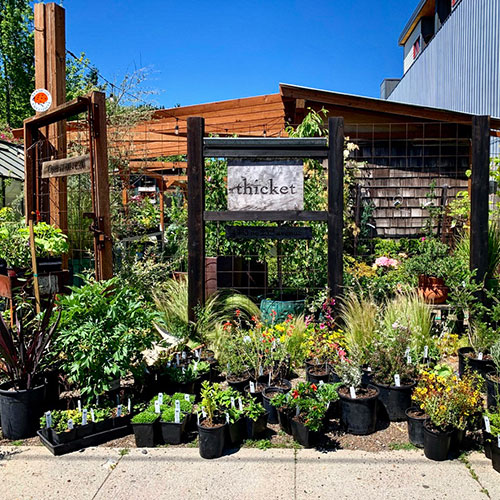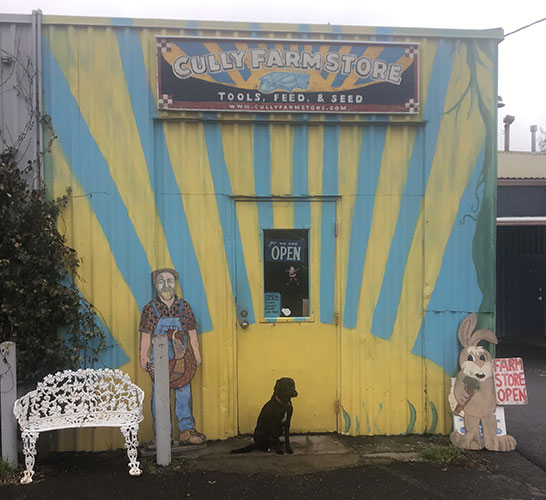By Kepper Petzing | Contributing Writer
Spring is here! For gardeners, spring is often the busiest time of the year. Below is some general gardening advice. For specific advice, ask your local nursery or garden store. (See box below.)

Patience
The freeze in January was hard on many plants. Frances Bender, owner of Thicket Nursery (4933 NE 23rd Ave.) encourages gardeners to be patient.
“Wait a month past when you would normally expect to see new growth before deciding whether the plants have died, or before doing major pruning.” she says. Some plants whose tops have died may resprout from the roots. Remove mushy and soft top growth to avoid getting secondary fungal growth.
Pruning
Dormant shrubs and trees should be pruned now before the sap begins to run. Valentine’s Day is the traditional date, but early March is usually OK. Don’t prune spring blooming bushes to avoid cutting off their flower buds.
For hardy perennials that need refreshing; like sword ferns and hellebores, remove last year’s growth when this year’s begins.
Planning
What worked last year? What needs to be changed?
Now is a good time to transplant and rearrange the garden. Plan for a succes sion of flowers and/or veggies.
One of the best controls for “bad bugs” are “good bugs” and birds who eat and compete with the bad guys. Don’t be too clean in the garden; leave space for debris where the good bugs live.

Preparing
Soil preparation is key for plant health. Avoid digging soggy soil. Top dressing with 2-3 inches of compost and mulch. “Rich, rotting, goodness” starts the season right, says Bender.
Cully Farm Store (4209 NE Alberta St.) has a bulk compost bin. Bring a 5-gallon bucket (no wasted packaging) and fill it with compost for $3.00. They also sell bulk fertilizer by the pound and can make bicycle-friendly packages.
Planting
There are “cool weather” and “warm weather” annual flowers and vegetables. Now is the best time to plant the cool weather ones. Bender warns to be wary of stores that put warm weather starts out too early. April weather can surprise; be prepared to protect plants or wait until the soil is at least 55 degrees.
Bulbs that weren’t planted in fall can be bought as plants now.
Pollinators
Think natives first but not natives only. Cultivars bred for fancy flowers may stymie pollinators. Some plants bred to bloom longer are sterile, offering nothing for our little friends. Include bees, please, including our local Mason bees. Cully Farm Store works with Bridgetown Bees, also located at 4209 NE Alberta St., a local honey bee supplier.
August is the hardest time for polli- nators who need nectar throughout the season. Ted Snider, (“Farmer Ted”), owner of Cully Farm Store, suggests planting zinnias which bloom long and late. Plant clumps of the same plant. Polli- nators need a meal; not just a nibble, and remember, hummingbirds and butter- flies are pollinators, too.
Purchasing
To decide what to buy, research how long different seeds last. First plan to use up last year’s seeds. Free is a wonderful price. Look for free neighborhood seed and plant exchanges. (See box for one on March 16th.)
Shop local. In addition to supporting our local economy, plants and seeds raised in the local environment perform better.
Pulling
Stay on top of emerging weeds. “An ounce of prevention is worth a pound of cure.” Thinning seedlings is important for proper spacing.
Gardening Help in Concordia
Cully Farm Store and Bridgetown Bees
4209 NE Alberta St.
503-729-3508
Thicket
4933 NE 23rd Ave.
503-961-0562
Kepper Petzing has lived in Concordia for 40 years where, with their partner Lowen, they raised two children. They are nonbinary. They love gardening and are grateful for Concordia News.